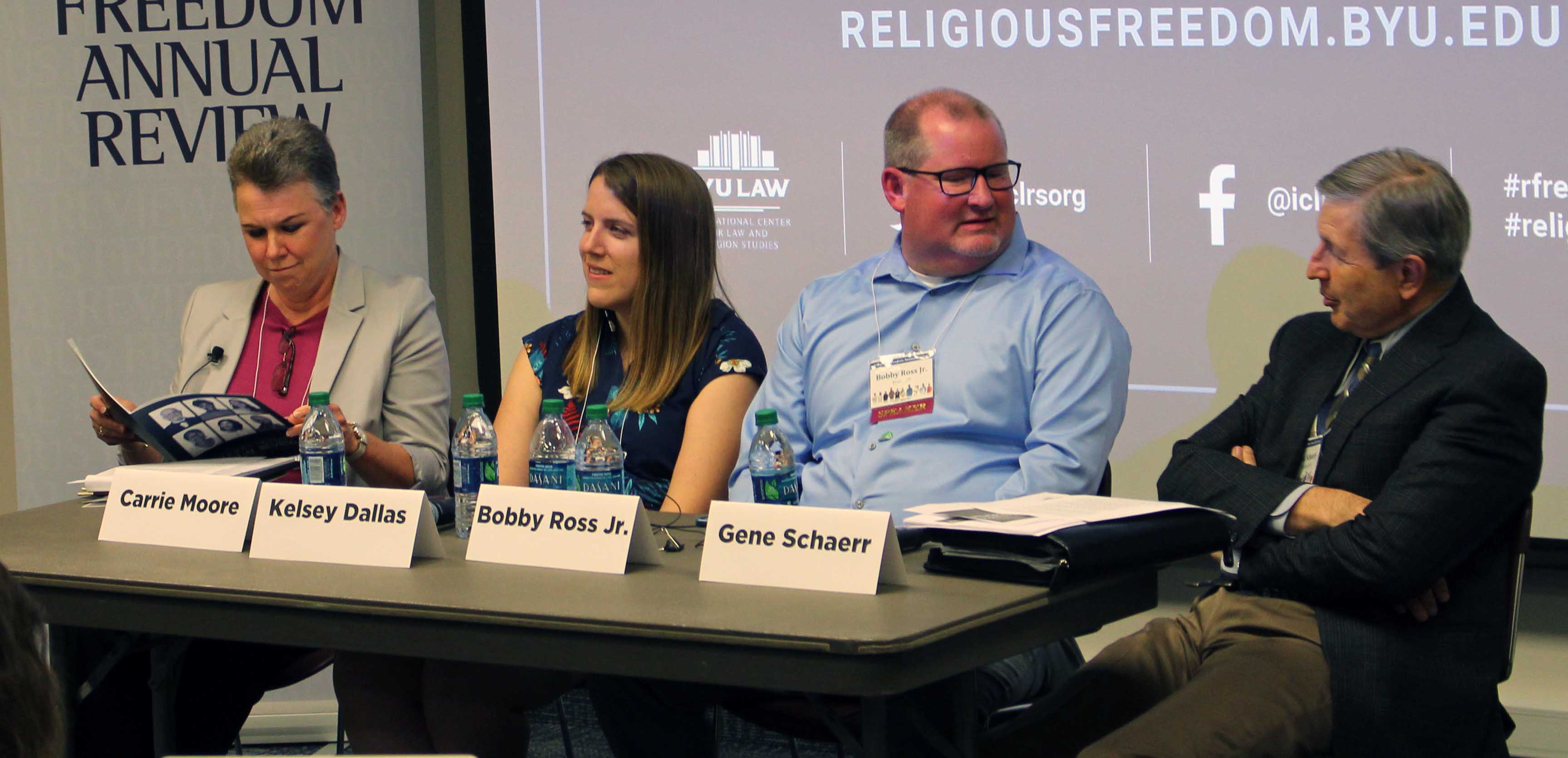Workshop: Media Stream: Religious Freedom 101 for Journalists Part 2: Where are we Headed – Kelsey Dallas, Bobby Ross Jr., Gene Schaerr

by Abdullah Hassan, 2018 ICLRS Student Fellow
The session “Religious Freedom 101 for Journalists Part 2: Where are we Headed” was moderated by Carrie Moore, newsroom manager at BYU Universe. Members of the panel included Kelsey Dallas, religion reporter at Deseret News, Bobby Ross Jr., chief correspondent at The Christian Chronicle and Gene Schaerr, Schaerr Duncan LLP.
The focus of this panel was to discuss the importance of reporting on religious freedom and how the reporting might change moving forward. The panel began the discussion focusing on if the media as an institution values religious freedom? Kelsey Dallas and Bobby Ross Jr. talked about how their newspapers value religious freedom because they both write for religious newspapers. Dallas also mentioned that “[ Religious coverage] is appreciated in society but is not being called on in newsrooms because it does not come with a big headline that will catch an audience’s attention.” One of the biggest hurdles that religious freedom has had to deal with over the last few years is the polarization that goes on with so many different voices talking about what religious freedom is and isn’t. While the panel felt that as a society we do have a good grasp of what we are talking about when we use the terms religious liberty or religious freedom, people’s perception of religious liberty is controlled by the media outlets they follow.
This influence has especially grown with the rise of social media. The panelists said that social media has both helped and hurt reporting in general. Social media has made it easier to connect with the public and get them information quicker and also has given readers the opportunity to provide feedback instantly. But it has also hurt reporting because some journalists will write a neutral piece and then go on social media and tell readers how they really feel about the topic, merging facts with opinion through social media outlets. Also, the panel mentioned that “because of social media, we are learning to only speak with readers who support our articles and we tend to ignore the critics.” Each member of the panel agreed that it is important to embrace your critics to become a more well-rounded and well-informed reporter and writer. In the end, the panel agreed that with the all advancements in today’s society, it has helped further the fight for religious freedom. We are equipped with resources and tools today that were not available in years past and because of those tools, reporters and writers have been able to keep the public well informed.